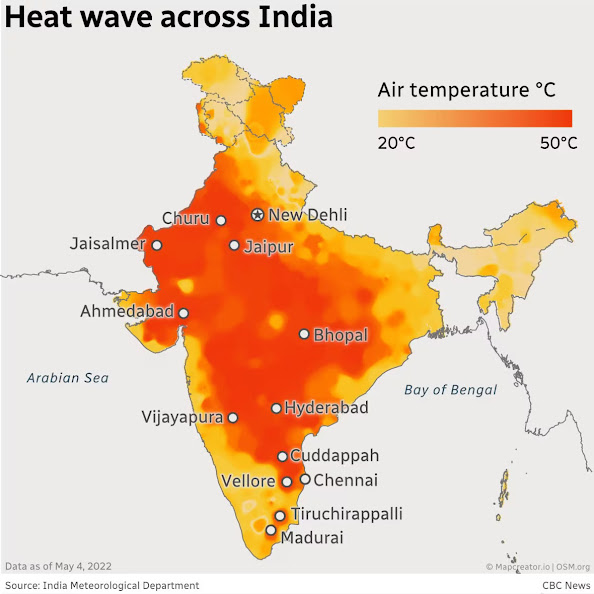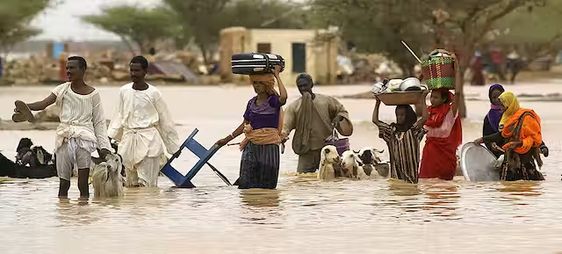Tuesday, July 1, 2025
Tuvalu Under Threat From Climate Change
Tuesday, March 4, 2025
The World's Glaciers Are Melting At A Faster Rate
Wednesday, December 18, 2024
Iceberg A23a Is Moving
Saturday, June 8, 2024
India's Heatwave
Thursday, September 21, 2023
The Rise of Global Flooding
Wednesday, July 19, 2023
The Global Heatwave And Concerns About Public Health
Thursday, July 6, 2023
Canada's Wildfires
Wednesday, May 24, 2023
Climate Change Is Effecting Developing Nations
Tuesday, September 6, 2022
Flooding On The Rise In Sudan
Seasonal floods have occurred in Sudan. This has been common with the rising waters that come from Nile River. The concern is the growing intensity of the floods. Rain fall and water levels are being altered by climate change. The increase in sea levels means flooding in costal areas. Sudan is not the only African country to struggle with floods. Uganda has seen some damage from rising waters. If too much rainfall happens this can cause landslides. When flooding stops, there are also devastating consequences. Homelessness and damage to infrastructure are major challenges. The death from flooding becomes more disturbing as governments show they have limited ability to save lives. Practical solutions do exist. Ditches, canals, and culverts must be expanded in Sudan. Infrastructure and other buildings should be as far away from at risk areas. An emergency evacuation plan should be established to ensure public safety. A climate change management policy must be developed b the African Union to ensure the preservation of East Africa. The intensification of floods also comes at a time when drought is happening in certain areas of the region.
Friday, July 15, 2022
Wildfires Spread Across Europe And North Africa
Tuesday, August 10, 2021
Warnings From The Intergovernmental Panel on Climate Change











